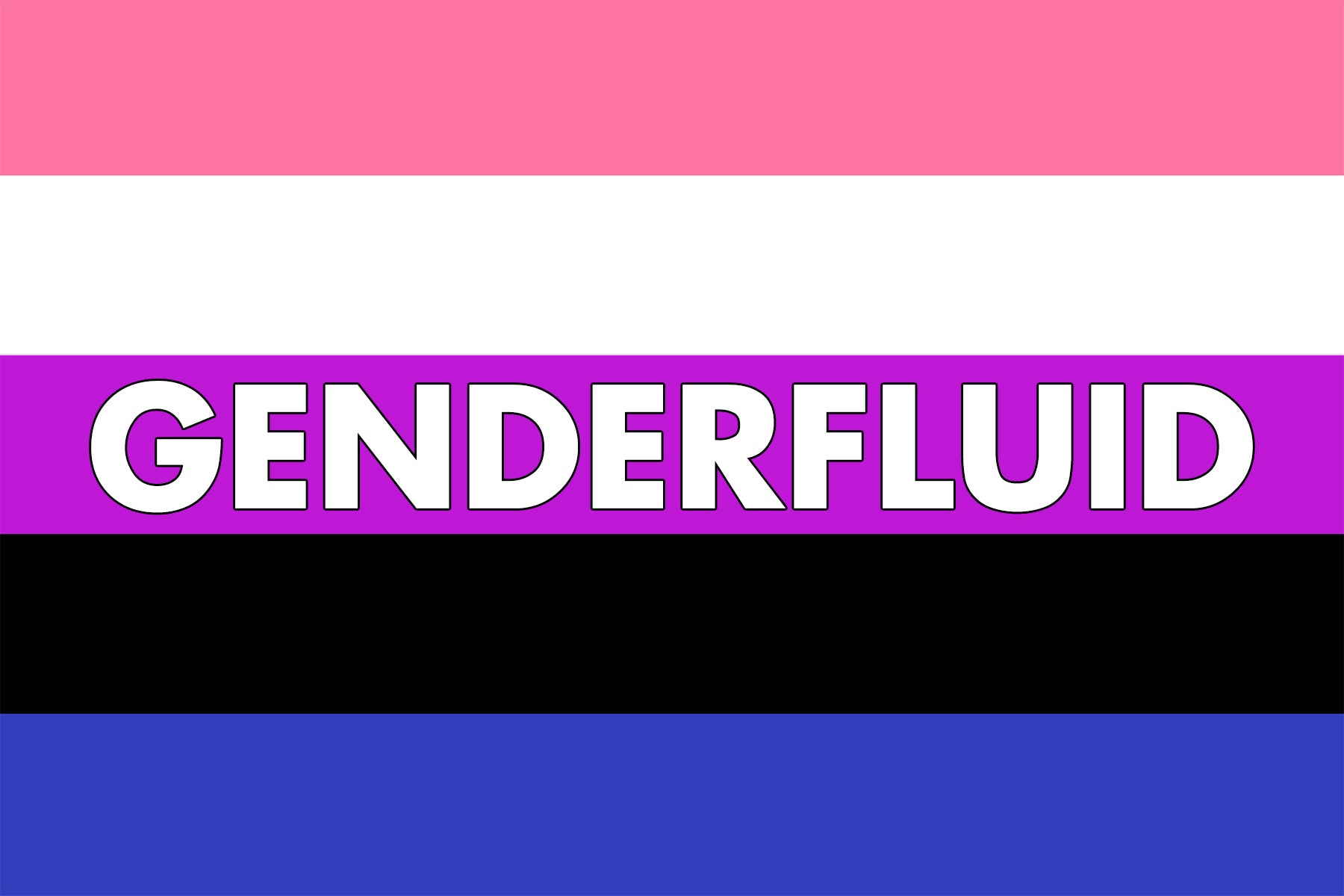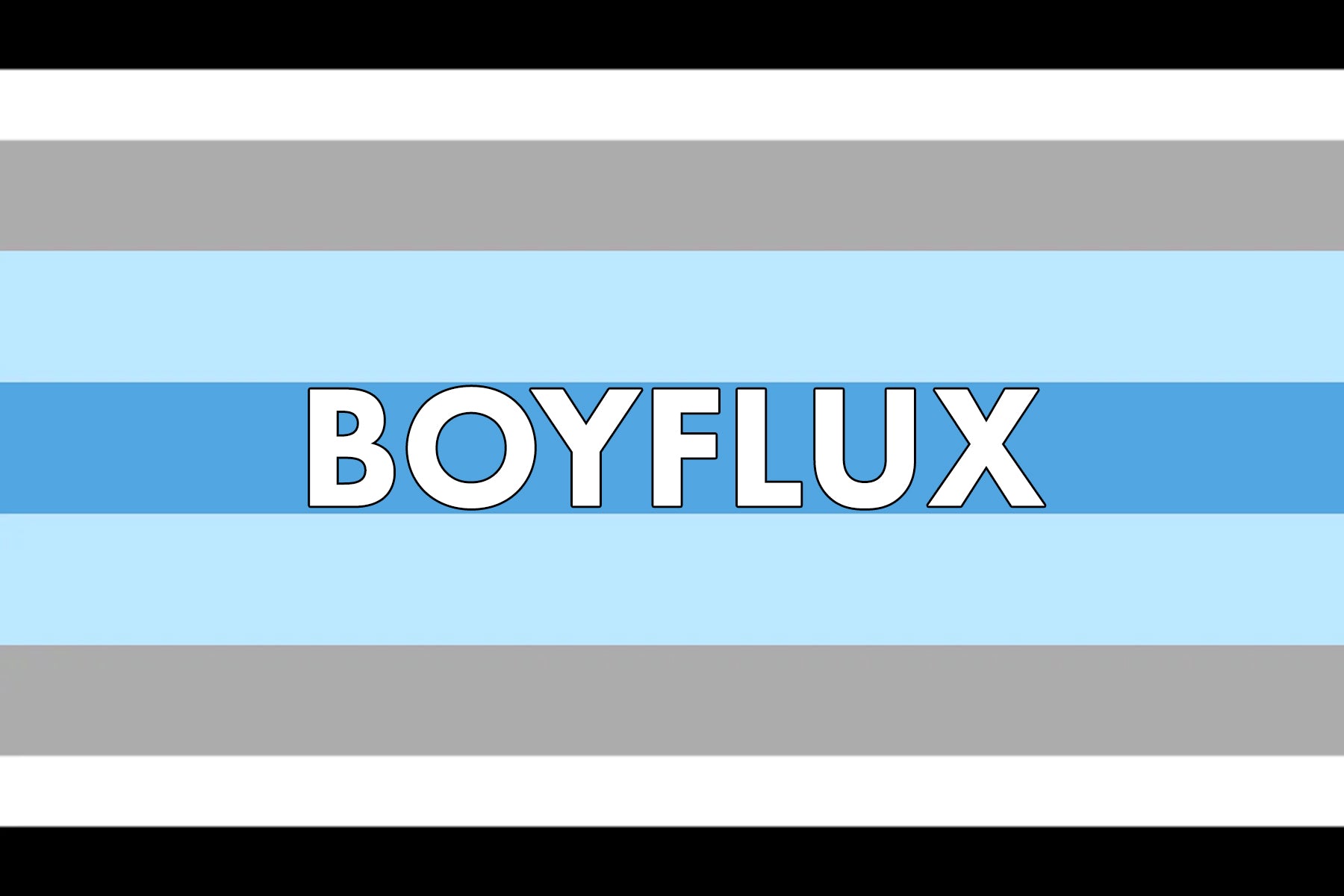
Due to the wide variety of identities we represent with our apparel, we're often asked for explanations of different terms and expressions that people may be unfamiliar with.
To help, we've put together this handy glossary of common gender identities to be used as a resource by the LGBTQ+ community and our allies.
The Difference between Sex & Gender
Sex refers to the classification of a person as male or female, most commonly at birth, and is usually determined by a person's external anatomy, otherwise known as their primary sex characteristics.
In contrast, gender, or gender identity, relates to how a person perceives and identifies themself. A person's gender can match the sex assigned to them at birth but can also differ.

What Does Intersex Mean?
An intersex person is someone who is born with a variation of sex characteristics which do not fit the typical male and female. These variations can be: chromosomes, gonads, sex hormones or genitals.
Some people may be identified as intersex from birth, others may find out later in life, and some people may never learn that they are intersex.
Shop our Intersex range here.
What Does Cisgender Mean?
Cisgender is a term for people whose gender identity fits with the sex they were assigned at birth. Cisgender can therefore be used to describe people who are not transgender.

What Does Transgender Mean?
Transgender refers to someone whose gender identity does not match the sex they were assigned at birth.
Some trans people transition and change their name, are prescribed hormones, and have surgery to align their bodies with their gender identity. Some trans people may only do some of those things, whereas other trans people may not transition at all. A trans person's identity is not determined by how, or if, they transition.
Shop our Transgender range here.

What Does Non Binary Mean?
A Non Binary person is someone who does not identify with the binary genders of male and female.
Non binary is often used as an umbrella term for someone who does not fit the gender binary. Other terms such as ‘agender’ and ‘genderqueer’ may come under the non-binary umbrella, but are also terms in their own right.
Find out more about what it means to be Non Binary and the history behind the Non Binary flag in our Short Guide to Non Binary
Shop our Non Binary range here.

What Does Genderfluid Mean?
A genderfluid person is someone whose gender is not fixed but can move fluidly along the spectrum from masculinity to femininity. Their gender may fluctuate throughout the day, over weeks or months, or depending on their environment.
Find out more about what it means to be Genderfluid and the history behind the genderfluid flag in our Short Guide to Genderfluid Identity.
Shop our Genderfluid range here.

What Does Genderqueer Mean?
A term used by those who identify outside of the binary genders of male and female. Genderqueer can be used as an umbrella term for people whose gender expression and/or identity rejects the gender binary.
Shop our Genderqueer range here.

What Does Greygender (Graygender) Mean?
Greygender refers to someone who is ambivalent about their gender and who usually identifies outside of the gender binary. Greygender people are not entirely without a gender identity, they may just not be invested in the concept of gender and therefore feel less of an inclination to express it.
Shop our Greygender range here.

What Does Genderflux Mean?
A genderflux person is someone whose gender varies in intensity over time. Genderflux can be seen as a form of gender fluidity and genderflux people may also identify as transgender, genderqueer, or non-binary.

What Does Boyflux Mean?
A boyflux person is someone who mostly identifies as male but also experiences fluctuation in their gender identity. For example, sometimes they may feel strongly masculine and other times less so. Other terms for boyflux include guyflux and manflux.

What Does Girlflux Mean?
A girlflux person is someone who mostly identifies as female but whose gender intensity fluctuates. Sometimes they may feel strongly feminine and other times less so. Girlflux can also be referred to as womanflux.

What Does Demigender Mean?
Demigender refers to someone who experiences only a partial connection to a specific gender identity. Many demigender people also consider themselves to be non-binary.
Shop our Demigender range here.

What Does Demigirl (Demiwoman or Demifemale) Mean?
Following on from demigender, a demigirl is someone who partially identifies as a woman or girl, but not wholly.
They may also identify as non-binary, genderqueer or transgender.
Shop our Demigirl range here.

What Does Demiboy (Demiman or Demimale) Mean?
Similarly, a demiboy is someone who partially, but not wholly, identifies as a man or boy.
Again, they may identify as non-binary, genderqueer or transgender.
Shop our Demiboy range here.

What Does Demiandrogyne Mean?
Demiandrogyne refers to someone whose gender identity partially connects to being androgynous.
A demi-androgynous person may also identify as non-binary, genderqueer or transgender.
Shop our Demiandrogyne range here.

What Does Bigender Mean?
Someone who identifies as two distinct genders.They may identify as both genders at once, or they may switch between the two.
Shop our Bigender range here.

What Does Agender Mean?
A person who identifies as not having a gender identity.
Some agender people may identify as non-binary, whereas others may identify as gender lacking, gender neutral, or as not having a gender at all.
Shop our Agender range here.

What Does Neutrois Mean?
A non-binary gender identity that is associated with having a neutral or null gender. It is an umbrella term, with each person experiencing neutrois differently.
Shop our Neutrois range here.

What Does Androgyne Mean?
A person who identifies as simultaneously male and female or in between male and female. Androgyne is an identity under the non-binary umbrella.

What Does Trigender Mean?
A trigender person is someone who experiences three distinct gender identities, either simultaneously, or moving fluidly between them. The three genders can be both binary or non binary and trigender people can also identify as transgender, non binary, or multigender.
Shop our Trigender range here.

What Does Metagender Mean?
The term metagender has had many varying definitions and was initially used as a technical term for something being outside of or transcending the gender binary. It is currently used to refer to someone who does not identify with the gender they were assigned at birth but who also does not identify as transgender.
For a more in depth look at the history and use of metagender, visit the metagender wiki here.
______________________________________________________________________________________
We've tried to cover as many gender identities as possible to reflect the wide spectrum found in our community however if we've missed something out, be sure to let us know by emailing us on info@rainbowandco.uk or messaging us via our Facebook page.


28 comments
I have no idea about these genders or don’t know my gender. I used she and her before. I felt like I was partly a girl but at the same time I was non-binary. After I read this article. I’ve figured out I’m a Demigirl. I am happy to know I found something new about myself. Now I used she and them. Also I learned something new about genders.
I have been identifying as gender-fluid for a while. My gender is definitely not fixed, but I’m always on the non-binary spectrum or agender. Does this make me genderflux since I’m always non-binary in some sense? Or am I still considered gender-fluid? I wasn’t taught about any of this stuff growing up so I’m learning all of it on my own now that I’m an adult.
I think I’m Trans and Demiboy, or Bigender, but I don’t know if I’m Gay, Bisexual, Pansexual now!!!
i feel like graygender but also demigirl and girlflux, am i trigender? if not then what am i? im so confused, but nice article, it looks clean and organized!
i feel like graygender but also demigirl, what am i?
Before reading this I had never heard of some of these. I normally just identify myself as Nonbinary because I am uncomfortable with being identified as Female (which around my parents I am still identified as) or Male. I don’t know how to explain my preference when it comes to gender. :/ plus I have to deal with people purposely misgendering me and I won’t tell my parents because of them literally trying to tell me there are only two genders.
Thank you for your lovely article. The LGBTA wiki is migrating to Miraheze, unfortunately without redirect. As such, the link to the Metagender article there will soon be dead. The original article (which is more complete and more frequently updated) is on nonbinary wiki: https://nonbinary.wiki/wiki/Metagender
But you can still find the migrated LGBTA wiki article here: https://lgbta.miraheze.org/wiki/Metagender
this helped!! especially seeing i can be genderfluid & switch between nb identities!! thanks for helping me on my gender journey :)
Very good article
I often identify myself as Jessica
I never heard of greygender but it feels a little more right then being genderqueer